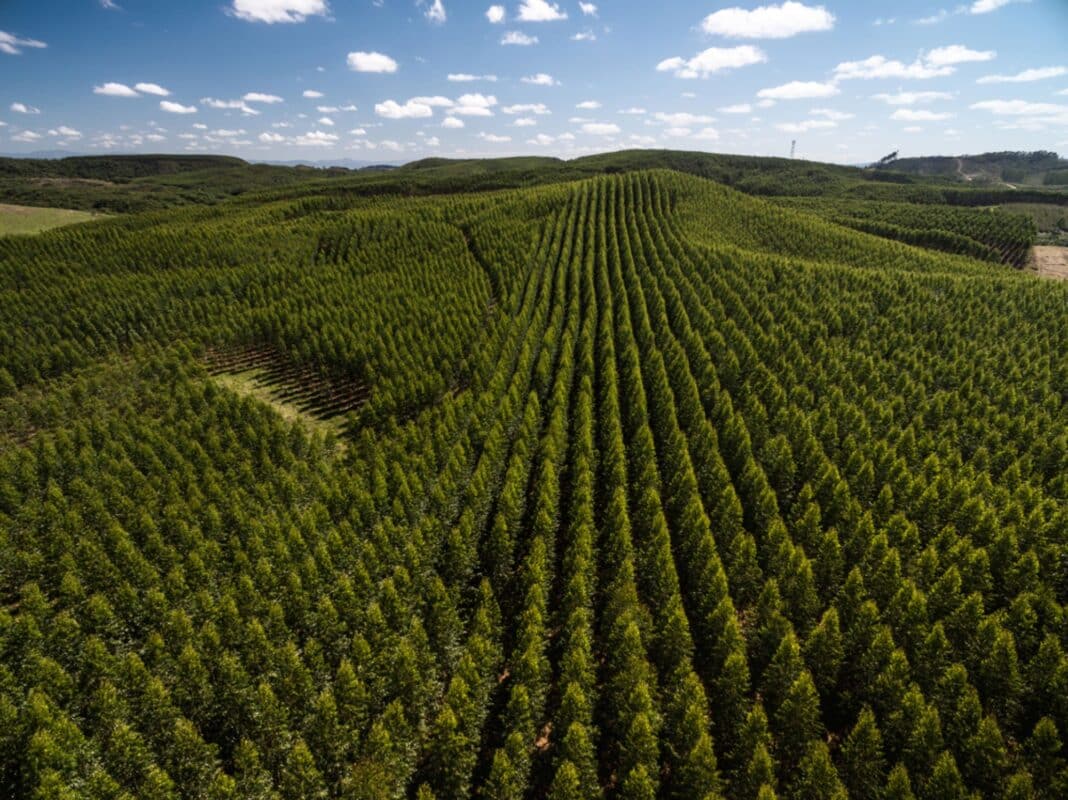A new report has found a ‘worrying lack of readiness’ amongst the top 100 pulp and paper producers as EU deforestation regulations come into force in December next year.
The new law will ban the sale of coffee, cocoa, cattle, palm oil, soy and wood connected to deforestation – with tropical timber and pulp companies required to prove their supply chains are deforestation-free.
Deforestation accounts for up to 10% of worldwide greenhouse gas emissions, according to the UN Global Forest Goals report, and the loss of biodiversity endangers the existence of millions of species.
A recent report identified that more than 50% of deforestation occurs in 5% of producing areas – including in the Amazon, Cerrado and Gran Chaco biomes.
!["This is a very strong result. We don't want to be complicit anymore in this global deforestation happening a little bit in Europe but first and foremost in other parts of the world," said the lead negotiator for the European Parliament, Christophe Hansen from the European People’s Party after the vote. [Copyright: © European Union 2023 - Source : EP]](https://woodcentral.com.au/wp-content/uploads/2023/04/Hansen-1024x576-1.jpg)
New Data published by the Zoological Society of London (ZSL) reveals that timber and pulp companies are “largely unprepared” for the new rules.
Once the law is introduced, non-compliant companies will lose access to the EU – the world’s third-largest market after the US and China.
In addition, companies that fail to meet the requirements could face criminal penalties and be penalised up to 4% of their EU turnover.
The report found that just 13.3% of companies provide evidence of deforestation monitoring within their operations, and just 4% monitor suppliers and contractors.
Just 15 out of 90 companies assessed have a public commitment to meeting requirements “that all materials due for import have not caused deforestation after December 2020.”
An even smaller number – just eight out of 95 companies – disclose that they require their suppliers and contractors to do the same.
While companies trading outside the EU are not obliged to follow the EUDR, any company trading with EU member states must adhere to the legislation.
Accordingly, the EUDR is a defacto global regulation, with the US now looking to introduce similar legislation.
Amazon Summit: Rainforest block of nations oppose the EUDR
Last week, Wood Central reported that a block of rainforest nations signed a communique opposing the EUDR, which will be addressed at the upcoming COP28 meeting in Abu Dabi in October.

They claimed the requirements are “trade restrictions disguised as environmental measures.”
According to Sam Ross, ZSL’s Sustainable Business Project Analysis and leading author of the report, the findings highlight a fundamental need for more readiness ahead of the December 2024 starting point.
“If the timber industry does not rapidly enact substantial change,” Mr Ross said, “the lack of preparedness could have serious business implications.”
“The EU is a major market for many of the companies we assessed, so there is a clear financial incentive for them to take meaningful and immediate action to tackle deforestation.”
Most companies failed to provide geolocation data for products sold, with only six out of 94 companies tracing 100 per cent of their supply to the harvest location.
Meanwhile, 30 out of 94 companies disclose the processes they use to engage suppliers in compliance with their policies and legal requirements.
In a media statement, the ZSL calls on financial institutions to support producer companies in addressing deforestation and enhancing compliance with the EUDR.
Robert-Alexandre Poujade, an ESG analyst and biodiversity lead at BNP Paribas Asset Management, told the UK-based Business Green that major financial institutions had a significant role in promoting sustainable practices within the industries it invests.
“The upcoming EUDR is a critical step in this journey.”
“We are actively supporting our partners in the timber and pulp industries to enhance their compliance and meet these important regulations. The EUDR aligns with our commitments, and we view it as an opportunity for the entire industry to progress towards a more sustainable future.”
How it Works
The regulation introduces a benchmarking system that assigns a low, standard, or high-risk level associated with deforestation and forest degradation to countries inside and outside the EU.
This risk classification will guide the obligations of various operators and the authorities in member states to perform inspections and controls.
Consequently, this will streamline monitoring for high-risk countries and simplify due diligence processes for low-risk countries.
Authorities responsible for these areas must inspect 9% of operators and traders dealing with products from high-risk countries, 3% from standard-risk countries, and 1% from low-risk countries.
This inspection aims to confirm whether they are effectively meeting the obligations stipulated by the regulation.
Furthermore, authorities will inspect 9% of relevant goods and products either placed on their market, made available, or exported by high-risk countries.
Lastly, the EU plans to enhance its cooperation with partner countries, focusing primarily on high-risk areas.






